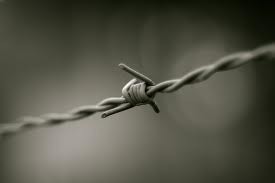P.A. Wilson's Blog, page 14
November 11, 2013
The saga of Elizabeth and romance | episode 2
Here’s episode 2 of Elizabeth’s adventures in romance
If you are looking for the first episode, check it out here.
The post The saga of Elizabeth and romance | episode 2 appeared first on P. A. Wilson.
November 4, 2013
The saga of Elizabeth and romance | episode 1
This is episode 1 of a short romance movie series. Enjoy!
The post The saga of Elizabeth and romance | episode 1 appeared first on P. A. Wilson.
October 26, 2013
New Release: Obsession, book 3 of the Quinn Larson Quests
 The third book in this urban fantasy series continues Quinn’s search for peace and quiet. This time, he’s stuck with more apprentices and other being’s demands.
The third book in this urban fantasy series continues Quinn’s search for peace and quiet. This time, he’s stuck with more apprentices and other being’s demands.
Sightless and defiant, Quinn walks a narrow, dangerous path through the hidden, magical world of Vancouver. The shadow of Cate’s death still haunts him, while the future has never looked so bleak.
His old nemesis, Fionuir, stirs in her prison. A grim prophecy threatens to doom them all. Even blind, Quinn must find a way through the coming darkness.
The post New Release: Obsession, book 3 of the Quinn Larson Quests appeared first on P. A. Wilson.
October 21, 2013
NaNoWriMo | haters beware of the fans
NaNoWriMo: in November every year hundreds of thousands of writers get together for what is essentially a month long flash mob of words on page. Every October writing blogs start posting about it. Some blogs are supportive, but other range from dismissive to outright hatred. I don’t get it. 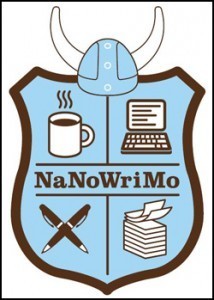
Why NaNoWriMo works
For me, there’s two main reasons that NaNoWriMo works for writing;
it’s a community and we have fun writing
it’s like golf – you are really only playing against your own demons
I think that’s why I don’t understand the haters – not that I understand haters of any kind. If I’m not forcing you to participate, why are you trying to diminish my fun?
Why there is some credibility to the haters
So, here’s the thing. For some NaNoWriMo participants, it’s about the joy of getting words on the page and nothing else. They don’t intend for their NaNo novel to see the light of day – and what happens between me and my keyboard is no one’s business. For others, it’s a great way to get that first draft out so they can perfect it.
For a small percentage of NaNoers, it’s an opportunity to publish, and they think their November baby is perfect. Sorry to break your dream if you are one of the last group. All books need work before publishing. Put the story away for a month and then go back and reread it, making notes for improvements. Or go ahead and publish it right away if that’s what floats your boat.
Stop the hating, start the writing
For those writers who don’t participate in NaNoWriMo, enjoy your month and write the way that works for you. For those who do participate, have fun with NaNo, because if it’s not fun, why do it?
If you are going to participate in the month of crazy writing, and you don’t know how to get started, I’m running a special on my writing course. Half price ($18) in celebration of National Novel Writing Month. Click on the image to find your writing style and get tips on how to make it through 50,000 words.
The post NaNoWriMo | haters beware of the fans appeared first on P. A. Wilson.
October 7, 2013
How to write a story | three tips to get you started as an author
There are people who want to become a writer, but they don’t know how to write a story. Getting started can be one of the hardest things in the process. 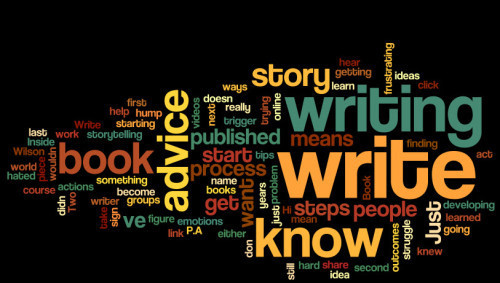
How to write a story – getting started
For most new writers, they get stuck when they try to start writing a whole book. I’ve observed as friends get wound up in perfecting the idea, doing research, building character back story. They don’t seem to know when to stop getting ready and when to start writing.
There are 3 criteria that I use to know when it’s time to stop with the procrastination and get down to the business of how to write a story.
Tip #1 – finding an idea
When it comes to learning how to write a story, I see people struggle to find the perfect idea. Well no idea is perfect. The perfection come in the execution of the idea. To find a story idea, look at the headlines in any form of news delivery. Even the parodies will help you find your idea.
When you have the germ of an idea, start asking what if questions. What if this weird thing happened? How would people react? What if this common activity became illegal? How would that change the way we live our lives?
Tip #2 – finding the story question
Now that you have an idea or two, it’s time to ask the story question. This is how to write a story – turn the idea into a big question. If your idea is that aliens will land on earth and they are benevolent and they want to save the world, your story question might be one of these,
- Will this religious fundamentalist find a way to reconcile their god with this new reality
- If people are saved, will they thrive? Is conflict and struggle a fundamental part of the human experience?
Feel free to use these questions in your own work.
Tip #3 – just do it (sorry Nike)
Some times the best way to get your story on the page is to just sit down and write. It may feel like you should be putting perfect work on the page, but maybe you are the type of writer who w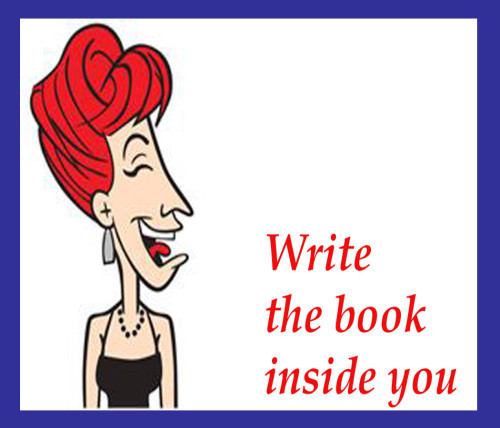 orks best by discovering the story as they write.
orks best by discovering the story as they write.
Knowing how to write a story is all about trying to write. If you want to know more about getting your book out of your head and into a reader’s hands, click one of the pictures and sign up for my writing course.
The post How to write a story | three tips to get you started as an author appeared first on P. A. Wilson.
September 30, 2013
Creating tension in fiction | 2 tips for revision
Creating tension in fiction is something that can happen when you write the outline, or the first draft. In revision, you need to ensure that your tension is right and tight.
What is tension?
When you are creating tension in fiction, it’s important to remember that tension isn’t just for thrillers. Tension in a story is what makes the reader turn the page.
In a romance, it’s what makes us read until the happily ever after ending even though we know it’s coming. In literary fiction, it’s why the reader follows the character journey. And in thrillers, mysteries, and action stories, it’s the need to know if the hero solves the mystery, catches the bad guys or saves the world.
Tip #1 for creating tension in fiction
Know the meaning of tension in your genre. If you haven’t read books in your genre for a while, read a few and look for the tension. If you have a favorite book in the genre, one not too dated, analyze the way the author builds scenes.
Now that you are an author, you will find your reading changes. You can still read for pleasure, but you’ll find that you notice the story craft in any book you read. Take advantage of that and learn from other successful authors.
Tip #2
The mistake that many new authors make when creating tension in fiction is to think tension lives only in the plot and only at the climax. This tip is to look for the tension in your story on every page.
When you are in the revision stage, look at each scene. A scene is a reflection of a story. Each scene needs to have tension and conflict and a hero and a villain. The conflict is about the hero not getting what they want. The tension is about the reader not knowing if the hero will succeed.
If you need some help finding what needs to be improved in your fiction, click on the link below to see my critique services rates.
The post Creating tension in fiction | 2 tips for revision appeared first on P. A. Wilson.
September 23, 2013
How to write a novel with great characters
I posted this video on YouTube today about how to write a novel with great characters.
How to write a novel without great characters?
You know, I don’t think you can. A novel requires both character and story. If your story is strong, but your characters are weak, your reader may not keep reading. And that’s what you want – your readers hooked and reading more and more of your books.
Great characters will carry a weak plot, but a strong plot will fall apart with weak characters.
What are great characters?
Learning how to write a novel with great characters is more about observing people and other characters and noting what makes them tick.
A great hero is flawed and sometimes quite broken. A hero is supposed to learn something through the timeline of the story. If your hero is perfect at the beginning, what will they learn? Knowing what your hero needs to learn is a good way to build in a few weaknesses.
A great villain is the hero of their own story. If your villain seems weak, think about the story from their point of view. What if they were the hero? How differently would they act?
How to start building great characters
When thinking about how to write a novel, I start with the conflict between the two main characters. Finding how they will butt heads to get their goals, helps me to build layers in their profiles and makes them better characters.
Try watching people as they interact around you. Try dissecting the characters in your favorite books. Great characters are all around you if you look closely. Give your characters the chance to be great.
If you want more tips on how to write a novel. Click on the picture and check out How to Write the Book inside You.
The post How to write a novel with great characters appeared first on P. A. Wilson.
September 16, 2013
How to write a book critique
Knowing how to write a book critique is a valuable asset. When you exchange critiques with another author, analyzing their work will teach you about your own craft too. 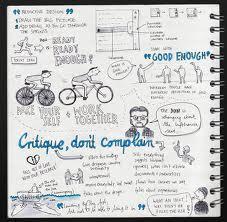
How to write a book critique
Remember that your advice needs to be about the work, not about the writer. Keep the comments and advice respectful and helpful. Think about the craft of the writing, and whether the hero’s goals and motivations are consistent. Look at the pacing of the story. Are there boring parts?
Making notes about these issues will help the author. Making suggestions about how the author might fix the issues, is helpful.
An example of how to write a book critique when you find a character’s action unmotivated:
When the hero ran into the gun fight, I didn’t understand why she would take such a risky act. You may need to build up the motivation early in the story.
How to write a book critique – badly
Looking at the example above, let’s see how not to give a critique.
Your hero was stupid to run into that building. No one would do that!
The other way to write a bad critique is to rewrite the author’s work. A critique is an expert opinion, the author is free to ignore what you see. By rewriting the work, you are changing the relationship from a peer based one to a teacher/student relationship.
Don’t: Your character wouldn’t say, “I ache for you, my love.” They would say “I miss you so much there is no candle that would be strong enough to banish the darkness.”
Do: It seemed like the character was more abrupt in their speech when they would normally be more poetic. Is there a reason you would have made such a change in their personality?
The key to knowing how to write a book critique is to be respectful, but not hold back on the issues you see.
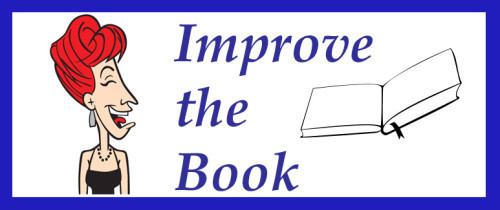 If you need to hire someone to review or critique your book, click on the image to see my rates.
If you need to hire someone to review or critique your book, click on the image to see my rates.
The post How to write a book critique appeared first on P. A. Wilson.
September 9, 2013
Self Publishing – is it for me?
Self publishing, like aging is not for wimps. Of course, traditional publishing is the same. For many writers the act of selling their work to a reader or a publisher is an incredibly painful arcane rite of passage. It doesn’t need to be that way. 
Self publishing – it’s a business
When you write the book, it’s all about the creative force. Whether it’s a first draft flurry of discovery, or fine details of that last polish, you are creating.
Publishing – self publishing in particular – is not about creativity, it’s about selling. You are selling to an agent or publisher in the traditional path, and in the self pub path, it’s to the reader directly.
Selling isn’t comfortable.
A quick test to see if you are ready to go the indie route
Are you persistent in the face of disinterest? If you can keep doing marketing activities even though you don’t see a direct link between your activity and a sale. then you might be a good self publishing candidate.
Are you willing to try things? There’s a lot of advice out there, often it’s helpful only for a short while. If you are willing to give some time to learning how to reach your readers, you probably are ready.
Are you able to pay for services you need? All of us have skills we can bring to the table, none of us is able to do a great job of all the aspects of self publishing a book. Do you have the money for an editor? How about someone to create a book cover? If not the money, do you have the time to learn?
Why self publishing might not be for you
One of the benefits of going the traditional route is that you get a lot of guidance from your publisher when you get agreement. An editor will work with you to make your book as marketable as possible. The cover and marketing copy will be done by experts; you don’t even need to come up with the title.
The one thing to remember that both self publishing and traditional will demand of you…. Marketing! You will need to help bring readers to your books.
If you have a book inside you and don’t know how to start writing, click on the image below to check out my online writing course.
The post Self Publishing – is it for me? appeared first on P. A. Wilson.
September 3, 2013
Editorial services | what to look for when you buy
Editorial services are part of the package when you are published in the traditional method. You put your best work forward and when the publisher buys, you work with an editor to make it even better.
For self-publishers it’s different because you need to engage the services of those experts who work for the publishing house. Many of us are inexperienced in what services to engage.
Self-published books are often smeared by others because “no self published author gets their book edited”. We know that’s not true. The sad thing is some of the books that are full of errors did receive the benefit of editorial services, just the wrong ones. 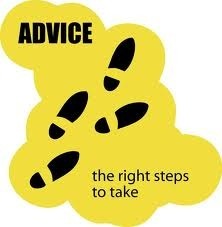
How to determine what you need for editorial services
One of the great things about self publishing is the opportunity to question the way things are done. For the traditional publishing houses, processes are in place because they were needed at some point. Like any industry, it becomes difficult to make change.
As a self-published author, you can look at your strengths – and the strengths of those around you – and then fill in the gaps with editorial services.
Are you a great proofreader? You might be able to proofread your own work. Do you have a friend who is a grammar lover? They might be able to do the line edits for you. Do you know other authors? Can they give you a manuscript review?
When you go looking for editorial services
These services can be expensive, so it’s important to make sure you are getting the right experience for your money.
Manuscript review – advice and feedback on the story you’ve created. You search for this after the first pass at revision. You are looking for writing craft advice. You can get this from an author, preferably someone who has published and sold a few books.
Editorial services – this covers a range of services from story advice to line editing that points out detailed issues like overuse of phrases. You want someone with experience in editing. This can be an author, but I suggest someone with editorial background. The services can be expensive, so you might want some references or testimonials.
The main point here is to make sure you need the service and then get the right people to do it for you.
If you need a manuscript review and don’t have access to other authors, or they don’t have the time, click on the picture below to see my rates.
The post Editorial services | what to look for when you buy appeared first on P. A. Wilson.

